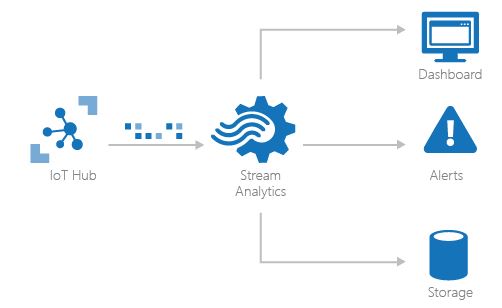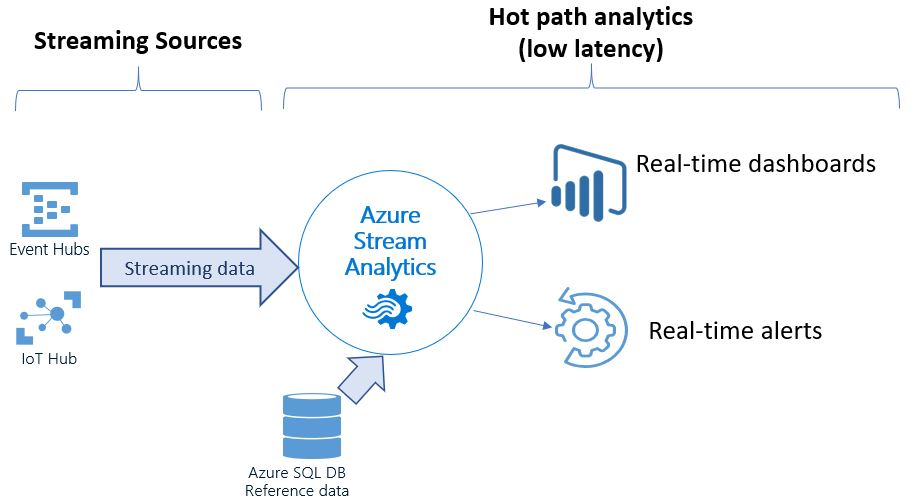- An Overview of AWS Machine Learning Tutorial
- Mapplet In Informatica | Purpose and Implementation of Mapplets | Expert’s Top Picks | Free Guide Tutorial
- Spring Cloud Tutorial
- Azure IoT Hub Integration Tutorial | For Beginners Learn in 1 Day FREE
- Cloud Native Microservices Tutorial | A Comprehensive Guide
- Azure Stream Analytics | Learn in 1 Day FREE Tutorial
- Azure Data Warehouse | Learn in 1 Day FREE Tutorial
- AWS Lambda Tutorial | A Guide to Creating Your First Function
- Azure Logic Apps Tutorial – A beginners Guide & its Complete Overview
- Azure Service Bus Tutorial | Complete Overview – Just An Hour for FREE
- Introduction to Azure Service Fabric Tutorial | Learn from Scratch
- Amazon CloudWatch Tutorial | Ultimate Guide to Learn [BEST & NEW]
- AWS Data Pipeline Documentation Tutorial | For Beginners Learn in 1 Day FREE
- What is Azure App Service? | A Complete Guide for Beginners
- AWS Key Management Service | All You Need to Know
- Apigee Tutorial | A Comprehensive Guide for Beginners
- Kubernetes Tutorial | Step by Step Guide to Basic
- AWS SQS – Simple Queue Service Tutorial | Quickstart – MUST READ
- AWS Glue Tutorial
- MuleSoft
- Cloud Computing Tutorial
- AWS CloudFormation tutorial
- AWS Amazon S3 Bucket Tutorial
- Kubernetes Cheat Sheet Tutorial
- AWS IAM Tutorial
- Cloud Concepts And Models Tutorial
- Cloud Network Security Tutorial
- Azure Active Directory Tutorial
- NetApp Tutorial
- OpenStack tutorial
- AWS Cheat Sheet Tutorial
- Informatica Transformations Tutorial
- AWS vs AZURE Who is The Right Cloud Platform?
- How to Host your Static Website with AWS Tutorial
- VMware Tutorial
- Edge Computing Tutorial
- Cognitive Cloud Computing Tutorial
- Serverless Computing Tutorial
- Sharepoint Tutorial
- AWS Tutorial
- Microsoft Azure Tutorial
- IOT Tutorial
- An Overview of AWS Machine Learning Tutorial
- Mapplet In Informatica | Purpose and Implementation of Mapplets | Expert’s Top Picks | Free Guide Tutorial
- Spring Cloud Tutorial
- Azure IoT Hub Integration Tutorial | For Beginners Learn in 1 Day FREE
- Cloud Native Microservices Tutorial | A Comprehensive Guide
- Azure Stream Analytics | Learn in 1 Day FREE Tutorial
- Azure Data Warehouse | Learn in 1 Day FREE Tutorial
- AWS Lambda Tutorial | A Guide to Creating Your First Function
- Azure Logic Apps Tutorial – A beginners Guide & its Complete Overview
- Azure Service Bus Tutorial | Complete Overview – Just An Hour for FREE
- Introduction to Azure Service Fabric Tutorial | Learn from Scratch
- Amazon CloudWatch Tutorial | Ultimate Guide to Learn [BEST & NEW]
- AWS Data Pipeline Documentation Tutorial | For Beginners Learn in 1 Day FREE
- What is Azure App Service? | A Complete Guide for Beginners
- AWS Key Management Service | All You Need to Know
- Apigee Tutorial | A Comprehensive Guide for Beginners
- Kubernetes Tutorial | Step by Step Guide to Basic
- AWS SQS – Simple Queue Service Tutorial | Quickstart – MUST READ
- AWS Glue Tutorial
- MuleSoft
- Cloud Computing Tutorial
- AWS CloudFormation tutorial
- AWS Amazon S3 Bucket Tutorial
- Kubernetes Cheat Sheet Tutorial
- AWS IAM Tutorial
- Cloud Concepts And Models Tutorial
- Cloud Network Security Tutorial
- Azure Active Directory Tutorial
- NetApp Tutorial
- OpenStack tutorial
- AWS Cheat Sheet Tutorial
- Informatica Transformations Tutorial
- AWS vs AZURE Who is The Right Cloud Platform?
- How to Host your Static Website with AWS Tutorial
- VMware Tutorial
- Edge Computing Tutorial
- Cognitive Cloud Computing Tutorial
- Serverless Computing Tutorial
- Sharepoint Tutorial
- AWS Tutorial
- Microsoft Azure Tutorial
- IOT Tutorial

Azure Stream Analytics | Learn in 1 Day FREE Tutorial
Last updated on 11th Aug 2022, Blog, Cloud Computing, Tutorials
Introduction to Azure Stream Analytics:
Azure Stream Analytics is a real-time streaming service provided by Microsoft.It consists of a difficult event processing engine designed to analyze and process vast volumes of real-time data .Like stock trading, credit card fraud detection, Web clickstream analysis, social media feeds, etc.For fastly analysis of data, either execute them in batch mode or in a real-time way.
For example, run real-time analysis on the credit card to detect the fraud immediately.To prevent the card’s misuse again in the future.Azure Stream Analytics is a fully managed Platform-as-a-Service(PaaS) offering.which means don’t need to handle any hardware and resources to perform analytics.It also uses Stream Analytics Query Language, a variant of T-SQL.And hence users from SQL backgrounds can fastly adapt and learn ASA.Azure Stream Analytics (ASA) allows defining patterns and relationships to trigger actions/workflows.To perform analytics, and the data can be used to send alerts, store information, or feed information to the reporting tools.
Key Features of Azure Stream Analytics :
The following are some of the key features are:
- 1. Ease of Use
- 2. Ease to Adopt
- 3. Fully Managed
- 4. Reliability
- 5. Security
- 6. Performance

1) Ease of Use : Azure Stream Analytics is simple to use, and it is very user-friendly.UI that takes only a few clicks to connect to different sources .And sink to create an end-to-end pipeline.
2) Ease to Adopt: Azure Stream Analytics uses the SQL query to analyze the data.The Stream Analytics query language allows user to perform difficult analysis by using data processing clusters. It also allows users to update/change the functionality by creating a user-defined function.
3) Fully Managed: Azure Stream Analytics is a fully managed Platform-as-a-Service(PaaS) offering.which means the entire platform is ready to use, and doesn’t have to manage any hardware or software, or job.only have to look into business logics, and the Azure Stream Analytics service will handle everything.
4) Reliability: Azure Stream Analytics is more reliable in job processing and highly fault-tolerant in case of failure and has built-in recovery capabilities.It provides at least once delivery of events and guarantees event processing with a 99.9% availability at a minute level of granularity as a managed service.
5) Security: Microsoft Azure offers excellent security to the data at rest and data in motion.It supports TLS 1.2 security system and VNET to handle data and users information confidentially.
6) Performance: Azure Stream Analytics can effectively process a massive volume of data per second, producing shallow latency results.Azure Stream Analytics is more scalable, and can fastly scale up and scale down based on the requirement.
Benefits Of Azure Stream Analytics:
- It is simple to start and create an end-to-end pipeline.
- It is an entirely managed offering on Azure.
- It can run in the cloud, for big-scale analytics, or run on IoT Edge or Azure Stack for ultra-low latency analytics.
- It is available across multiple regions worldwide.
- It is designed to run mission-critical workloads and encourages reliability, security, and compliance requirements.
- It encrypts all the incoming and outgoing communications.
- It can process millions of events every second and deliver output with ultra-low latencies.
How Does Azure Stream Analytics Work?

- An Azure Stream Analytics job includes input, query, and an output.
- It ingests data from Azure Event Hubs, Azure IoT Hub, or Azure Blob Storage.
- The query is based on SQL query language and can be used to simply filter, sort, aggregate, and join streaming data.
- Every job has one or several outputs for the transformed data, and can be controlled in response to the information analyzed
- Send data to Azure Functions, Service Bus Topics, or other services to trigger communications .
- Save data in Azure storage services to train the machine learning models based on historical data or perform batch analytics.
Use Cases Of Azure Stream Analytics:
- Save streaming data and make it available to other cloud services for further analysis, reporting, etc.
- Transform and analyze data in real-time
- Real-time dashboarding with the Power BI (monitoring purposes)
- send alerts.
- Made decisions in real-time.
- Machine learning although for more advanced analytics it has limited usage.
- Geospatial analytics for fleet management and driverless vehicles.
Limitation:
- It only supports SQL .
- Input data needs to be AVRO, JSON or CSV
- Can only use blob storage to add static data
- Can only integrate with Azure services
- Cannot benefit from supporting dynamic reference data join.
- There is no automatic scaling .
Conclusion:
This article teaches about Azure Stream Analytics and how to set up an analytics process fastly.It also provides in-depth knowledge about every step’s concepts to help understand and implement them efficiently.Carrying out an in-depth analysis of data requires integrating difficult data from numerous data sources in real-time.Azure Stream Analytics is an entirely managed serverless engine for performing real-time analytics on, more different real-time data streams such as sensors, web sources, IoT devices etc.Allows simple to work with UI for building real-time data streams, without the need to worry about setting up clusters, network, security etc.It’s a super engine to get started with real-time analytics in the cloud.